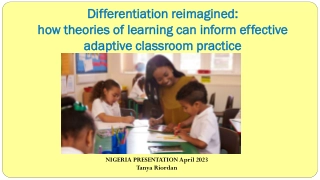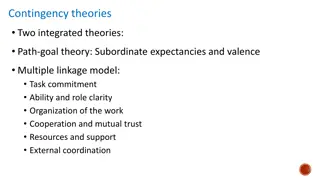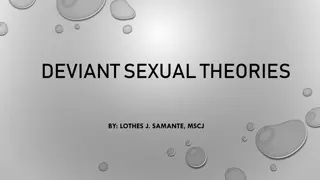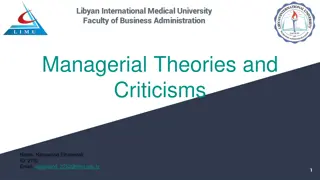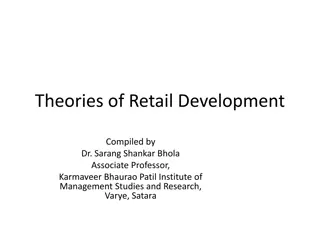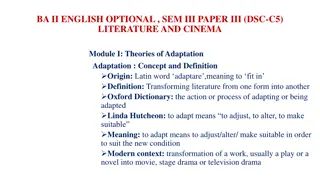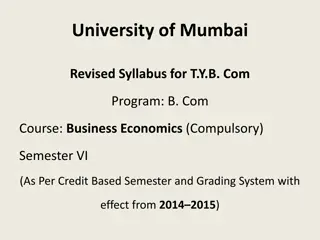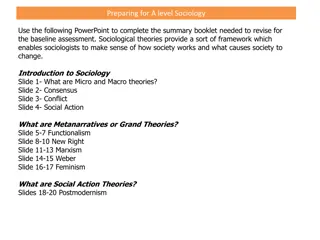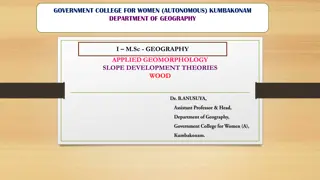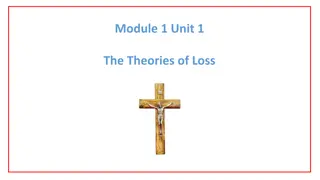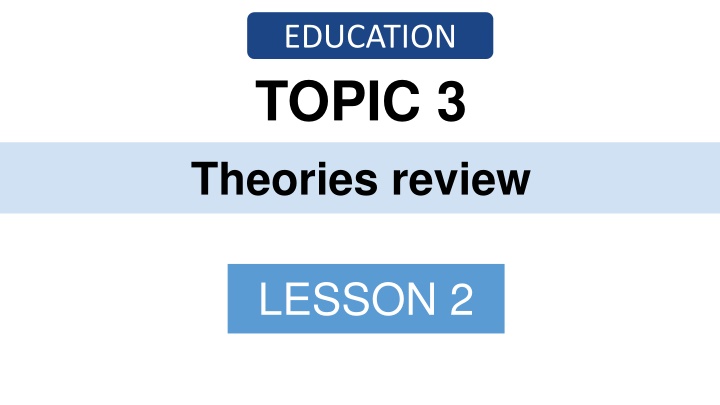
Comparing Educational Theories: Postmodernism vs. Functionalist vs. Marxist Perspectives
Explore the contrasting viewpoints of Postmodernism, Functionalist, and Marxist theories on education. Discover how each theory addresses class inequality, gender roles, meritocracy, and social order within the educational system. Analyze the functions of education in society and the criticisms associated with these perspectives.
Download Presentation

Please find below an Image/Link to download the presentation.
The content on the website is provided AS IS for your information and personal use only. It may not be sold, licensed, or shared on other websites without obtaining consent from the author. If you encounter any issues during the download, it is possible that the publisher has removed the file from their server.
You are allowed to download the files provided on this website for personal or commercial use, subject to the condition that they are used lawfully. All files are the property of their respective owners.
The content on the website is provided AS IS for your information and personal use only. It may not be sold, licensed, or shared on other websites without obtaining consent from the author.
E N D
Presentation Transcript
EDUCATION TOPIC 3 Theories review LESSON 2
Do Now task 1 Using Padlet Find out the following about POSTMODERNISM Complete the summary/evaluation table Postmodern keywords Postmodern Ideas Postmodern criticisms
Reproduces class inequality and justifies class inequality Main criticism ignores gender Produces docile workers Althusser Criticism ignores lack of meritocracy and other problems Bowles & Gintis meritocracy is a myth which is used to blame people for not succeeding Hidden curriculum reinforces gender differences Bowles & Gintis close link between school & work: Pupils taught to accept hierarchy at work work also has a hierarchy Pupils motivated by grades to do boring work workers rewarded with pay to do boring work Durkheim education passes on norms and values in order to integrate people into society. Men dominate to positions in schools head teacher, etc School day broken into units so is school work At school and work subservience (following the rules) is rewarded Role of education to provide equal opportunities, promote growth and create social solidarity Views education as meritocratic so there are no unfair inequalities Criticism ignores lack of meritocracy and other problems Criticism of Durkheim assumes norms and values promoted in school are those of society as a whole Education helps create social order School is society in miniature interact with other members of community & follow rules Parsons role selection Criticism who you know is still more important that what you know in some parts of society Role of education is to provide for women who are disadvantaged Education system is patriarchal reproduces gender inequality Gender differences in subject choices Gender stereotyping might still exist Education serves useful functions in capitalism Willis education doesn t turn out an obedient workforce some pupils form anti school subculture. Criticism presumes people are passive victims
Functionalist Role of education to provide equal opportunities, promote growth and create social solidarity Views education as meritocratic so there are no unfair inequalities Durkheim education passes on norms and values in order to integrate people into society. Criticism of Durkheim assumes norms and values promoted in school are those of society as a whole Education helps create social order School is society in miniature interact with other members of community & follow rules Parsons role selection Criticism ignores lack of meritocracy and other problems Criticism who you know is still more important that what you know in some parts of society
Marxist Education serves useful functions in capitalism Reproduces class inequality and justifies class inequality Produces docile workers Althusser Main criticism ignores gender Bowles & Gintis meritocracy is a myth which is used to blame people for not succeeding Bowles & Gintis close link between school & work: Pupils taught to accept hierarchy at work work also has a hierarchy Pupils motivated by grades to do boring work workers rewarded with pay to do boring work School day broken into units so is school work At school and work subservience (following the rules) is rewarded Criticism presumes people are passive victims Willis education doesn t turn out an obedient workforce some pupils form anti school subculture.
Feminist Role of education is to provide for women who are disadvantaged Education system is patriarchal reproduces gender inequality Hidden curriculum reinforces gender differences Gender differences in subject choices Gender stereotyping might still exist Men dominate to positions in schools head teacher, etc

